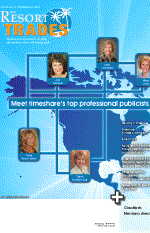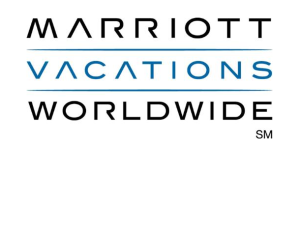Timeshare: A maze or amazing?
Monday, September 10, 2012

The following article by Jason Tremblay was first published in the August issue of The Resort Trades and is republished here with their permission.
Since 1986, The Resort Trades has been a respected source of news and information targeting the resort and timeshare sales industry. The Resort Trades offers display advertising, classified advertising, Trade Member listings, as well as monthly industry news and press releases, global analysis articles, and in-depth interviews with industry professionals and business leaders.
At SellMyTimeshareNow.com and VacationOwnership.com we are honored to among their contributing authors.
Timeshare: A maze or amazing?
By Jason Tremblay
Everything about the opportunity to own your vacation, to return to favorite destinations or explore new venues, and to do so in comfort, security and style is amazing… except when we in the timeshare and vacation ownership industry manage to turn amaze into “a maze.” In print, the distinction between the two words is one tiny empty space. If we examine our businesses, we might find that the differentiation in the way we view our purpose and our product is equally as subtle. Yet, unchecked, what we do in the timeshare industry that turns amaze into a maze can become the critical difference between a sale and no sale and even the difference between business success and business failure.
Ironically, in vacation ownership, we seem to teeter on the edge of turning our amazing product into a maze of rules, guidelines, caveats, and restrictions. Governed by legislation and impacted by everyone from OSHA, to the real estate industry, the Federal Trade Commission, and endless other agencies and watchdogs, vacation ownership is already complicated. If we stepped back and thought about it, we might start turning our energy as an industry toward streamlining and simplifying our products and services as much as possible.
Why? Because simpler is always better and because most timeshare owners do not understand what they own. Even though they may be satisfied with their ownership, they often don’t take advantage of the full benefits and features to which they are entitled because they aren’t aware of them or don’t understand that these benefits apply to them. And the biggest reason to simplify what we sell is because consumers have stopped listening. Traditional marketing no longer works in the way it once did and for the snippet of mental bandwidth a consumer allocates to “listening,” he or she is not going to burn it on marketing and advertising messages that are complicated. The simple story will win out every time.
Why consumers have stopped listening
A number of years ago, author Seth Godin spoke at one of the TED conferences (www.ted.com) about why interruption marketing no longer works. For years, interruption marketing has been the basis of television advertising that interrupts the programming consumers sit down to watch. Interruption marketing pops into our lives in the form of Internet advertising, email campaigns, those annoying popup ads and stacks of junk mail we are all forced to deal with because the postal service delivers it to our front door. In timeshares, interruption marketing has taken its own unique forms. There is mail and email, but there are also phone calls from timeshare sales associates, OPCs and on-site sales staff who interrupt people during their vacations.
We all understand how annoying interruption marketing can be because even though we are business people with products to market, we are also consumers ourselves. We know what we hate and we know why others hate it too, and we shouldn’t assume that we’ve written our marketing collateral in a way that somehow makes it less annoying than that of anyone else engaged in interruption marketing.
For years, the premise behind interruption marketing worked. Consumers made buying decisions based on the impact of ads, commercials, and overtures from direct sales personnel – until it all became like living near the railroad tracks.
The trains still roll through every day and every night, but we no longer hear them. Over the years, they’ve become larger, faster, and louder… but it doesn’t matter. Even when they shake our houses, we simply do not notice. As consumers who have been bombarded by marketing and advertising since we were in utero, and we have become highly effective at tuning it out.
We record our television shows so we can fast forward through the commercials. We put pop-up blockers on our computers, scroll past the Internet advertising we want to ignore, delete emails without opening them, and let phone calls we don’t want to answer go to our voice mail. As desensitized consumers, we respond only to that which amazes us and we run backward from anything that is not painlessly simple to understand and use. Who has time for mazes?
Simplicity in purpose
Timeshare developers, hospitality brands and resorts have a beautifully simple purpose in their message. Timeshares are prepaid ownership of the way vacations make you feel. Everybody is happier on vacation. Vacation ownership is a prepaid commitment to having intervals of vacation happiness in your life. All the rest of the bells, whistles, perks, and benefits are important… but not really. The simple message of vacation ownership always comes down to the fact that you, me and every other consumer is always happier on vacation.
In timeshare resales, it is equally easy to lose sight of the simple purpose. Consumers buy vacation ownership resales because of the price. If timeshares were not lower in price from the reseller than from the resort, no consumer would ever buy on the resale market. Timeshare buyers would, 100 percent of the time, buy timeshare from the developer, because buying from the source intrinsically carries with it confidence-inspiring factors. Resellers have one feature to sell that differentiates them from developer sales and one feature only: price.
Simplicity in product
The guidelines for owning, using, exchanging and enjoying your timeshare product are simple to you because you helped draft them, you approved them and of course, you understand them. But most timeshare owners look at the guidelines that come with their timeshare and think they are as simple as federal tax code. There are clubs, tiers, perks, membership levels, colors, stars and reward programs. Potential owners get a whiff of the complexities of timeshare ownership guidelines and they can’t back away fast enough.
Today’s timeshare buyer isn’t like Ward and June Cleaver who bought timeshare decades ago. June was a domestic engineer, devoted to all the details of the family’s life. If she and Ward wanted to commit their spare time to working their way through the stipulations involved in using their timeshare, they had more flexibility to do so than do most of today’s timeshare buyers.
Everyone is always happier on vacation
Recently Godin wrote a blog post titled, “It’s Easier to Love a Brand When the Brand Loves You Back.” Questioning why gift certificates have an expiration date, he described it as, “a policy designed to punish a few outlier customers while it actually annoys all of them.”
Let’s simplify. Kill the maze. Be amazing. Love your customers so they have a reason to love you back. And remember that everyone is always happier on vacation.
You can also read this article in the September 2012 issue of The Resort Trades magazine.


